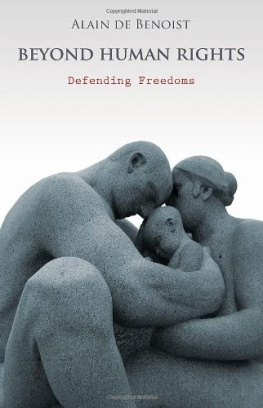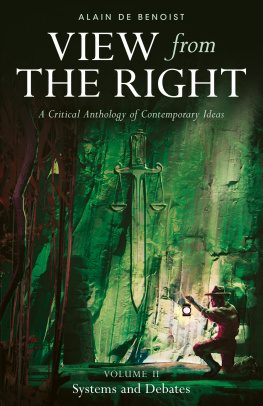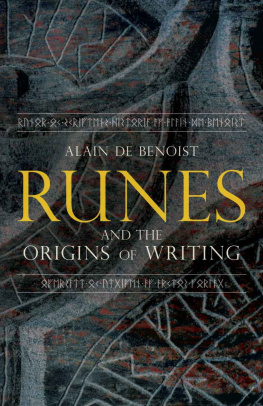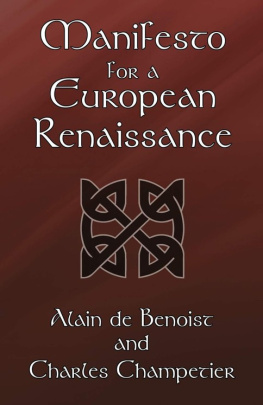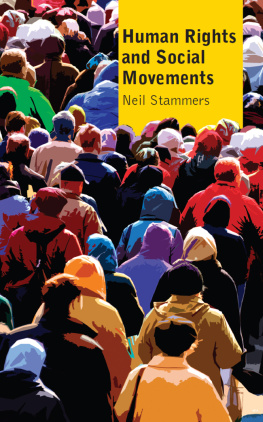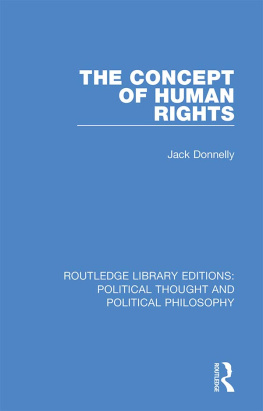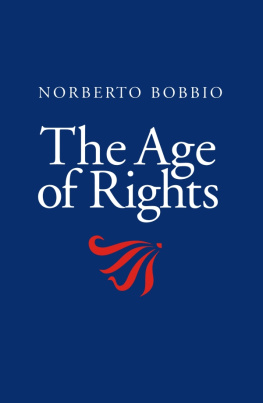U nless o th erwise indicated, th e footnotes to th e text were added by th e au th or himself for th e original French edition. Additional footnotes which were added by me are so marked. Where sources in o th er languages have been cited, I have attempted to replace th em wi th existing English-language editions. Citations to works for which I could locate no translation are retained in th eir original language. Web site addresses for on-line sources were verified as accurate and available during May and June 2011.
I would like to th ank Prof. Eric Maulin, who kindly contributed an original Foreword for th is volume on extremely short notice. I would also like to extend my appreciation to Sergio Knipe, who translated th e Foreword; to Dr. Alexander Jacob, who made some clarifications regarding th e translation of th e Foreword; and to Mat th ew Peters, for his extraordinary contributions as a proofreader.
-JOHN B. MORGAN IV
Foreword
S ummum ius, summa injuria . There is, perhaps, no other area of law where Ciceros saying (well-known to all lovers of dictionaries of quotations) is more applicable than human rights. In the name of humanity, the Empire of Good will bomb Belgrade, Baghdad or Tripoli, foment colour revolutions in former Soviet states, set the Maghreb and the Near East ablaze, and seek to universally impose its fundamentalist conception of democracy. Squads of businessmen dispatched by corporations will follow the ideological bulldozers driven by the evangelists. How many times have popular revolutions been hijacked by social benefactors chiefly interested in serving the interests of the people behind them?
Already in the late 1970s with the onset of the second wave of globalisation the philosopher Marcel Gauchet observed how the defence of human rights had been turned into a substitution policy. in Strasbourg, great inscrutable judges, enveloped in long silk robes, unflinchingly issue regulatory judgements reversing previous laws, overruling parliaments and bypassing the constitutions of sovereign states. It is difficult to make this criticism heard because the Church of Human Rights is so powerful that it imposes as self-evident doctrines which rest on nothing but sheer assumptions, and which often go against the most ancient laws in peoples traditions.
It is upon these assumptions that Alain de Benoist focuses, investigating the origins, basis, universality and influence of human rights. In doing so, he undermines the very foundations of human rights and their underlying claims.
1. Human rights are often presented as being timeless rights. Take the Preamble to the Declaration of the Rights of Man and of the Citizen of 1789:
Th e representatives of th e French people, constituted in th e National Assembly, considering th at ignorance, forgetfulness or contempt of th e rights of man are th e only causes of public misfortunes and th e corruption of governments, have resolved to set for th , in a solemn declaration, natural rights, inalienable and sacred to man.
Forgetfulness or contempt, according to this declaratory rhetoric, justifies the need to reinstate rights which nonetheless already exist . It is for this reason that the first French Revolutionaries were so keen to draw a distinction between the Declaration of 1789 on the one hand and the Constitution of 1791 on the other. The former reinstates what is already in existence, whereas the latter establishes something which previously did not exist; the former invokes an alleged tradition, the latter forges institutions for the new man. But clearly this is a largely rhetorical distinction. The antiquity of the rights invoked serves to justify the promotion of the new man, Homo oeconomicus , whose actions are entirely calculated to match the algorithm of his own interests and whose behaviour can be standardised.
Antiquity, however, ignored the idea of fundamental rights. Neither the Greeks nor the Romans believed there could be such a thing as what we call human rights, which are subjective rights attached to all human individuals as subjects. For human rights to become possible, the notion of the individual had to be invented, and Norbert Elias has shown that there was no equivalent to it in Antiquity.
The anthropological revolution which made it possible to think of man as an individual immediately went hand-in-hand with a juridical revolution which imposed the idea that individuals are equal before the law , i.e., that they possess inalienable subjective rights. Differences among men thus came to be regarded as something merely contingent, secondary and social, and hence commonly perceived as unjust. So much so that, as Ren Girard has illustrated, it is equality through the mimetic rivalry it engenders and not mutual difference which is the major cause of conflict among men. It is based on an abstract conception of the individual, reduced to certain constitutive elements whose combinations standardise our actions.
2. Human rights, however, are presented not in terms of th eir historicity for th is would weaken th eir au th ority by relativising th em but th rough a philosophical tale of th eir foundations. It is always very important to clearly distinguish th e historical question of origins from th e philosophical one of foundations. Alain de Benoist must be credited for having drawn a perfect distinction between th e two issues.
In its basic version, the question of the foundations of human rights may be formulated starting from social contract theories. Indeed, explanations not of the origins of society but of its foundations were first developed within the school of modern natural law, a current of thought which began with Grotius publication of the treatise The Rights of War and Peace in 1625 and which continued into the Eighteenth century. The various social contract theories vary significantly, to the point they are mutually irreducible. Still, they follow a line of thought that may be summed up as follows: free individuals exist in the state of nature. In order for them to defend their own freedom and property, they soon realised they needed a common power which could secure their fundamental rights. The state, which is to say public power, results from an agreement among free individuals who have regrouped to form an association. The political constitution which serves as a law for them is the contract which brings them together. All the elements behind the theory of human rights are already present in this mythological account: the individual in the state of nature is a Homo oeconomicus , a free individual and property owner concerned with defending his own interests. Through rational planning, he reaches the conclusion that the establishment of the state is necessary if he is to defend his own interests. As individuals are essentially rational, a collective choice can only lead to a contract. Case made. The same reasoning may be applied at the level of states to justify the establishment of an international society.

